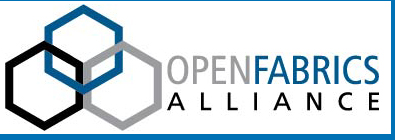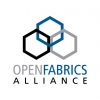This blog includes feedback from the OFA Developers’ Workshop, and the continuing work of what was originally called the “OpenFramework Working Group”, and is now called the “OpenFabrics Interface Working Group” (OFIWG).
Briefly, the history of the OFA has been one of expansion. More or less in historical order, the OFA has moved from:
- Linux-based to becoming OS agnostic
- InfiniBand-centric to becoming transport agnostic
- HPC-focused to embracing other applications requiring high-performance networks
- A community of developers to identifying and working with “interest groups”
It’s important to be clear that in all cases this was an expansion of focus; not an abandonment of an earlier focus area.
The last area is the one I want to focus on in this blog. The OFIWG has been exploring four sets of application areas, to understand the unique requirements of each to develop a new “framework”. Those areas are:
- Legacy Apps (sockets and IP)
- Data Analysis (structured and unstructured data)
- Data Storage, Data Access (file systems, object storage, block storage, distributed storage, storage at a distance)
- Distributed Computing (MPI – message passing and PGAS – shared memory)
A valuable consequence of investigating these application areas has been the need to identify “interest groups” corresponding to the four classes of applications. Interest groups are groups of individuals who can collectively produce requirements for these areas. This is working very well, by the way, and it has fostered the idea that interest groups should be the next big expansion area for the OFA. This thought was offered at the Workshop and seemed to resonate with attendees. In fact, I would characterize this as a “transition year” for the OFA, meaning, to be clear, the year we embarked on a systematic process of identifying and engaging with interest groups. Again, let me be clear, this is in addition to our traditional close involvement with developers in the open community.
It’s worth reflecting briefly on why the notion of interest groups is so different from our practices in the past. Historically, the OFA has worked with the Open Community to enhance OFED and contribute to other software repositories, collectively “OpenFabrics Software” (OFS). With the advent of an expanded focus to include input from interest groups, we can both do a better job in enhancing and maintaining OFS, but also reaching out to interest group members that are not currently engaged with the OFA at all.
An example of this is the OFI WG and the face to face working meeting held on the first evening of the Workshop. Since its inception, the OFI WG was organized to draw inputs and active participation from groups interested in each of the four classes of applications I mentioned earlier. The result of this focus on interest groups, rather than on just developers, was that over fifty people representing a broad array of vendors, developers and consumer of networking technology showed up, with a lot being accomplished and a consensus to have this type of meeting again. This astonishing turnout, after a jam packed day of technical sessions, was a strong indicator that we’ve created the right kind of environment for this working group.
What does this mean to the OFA? To tell you the truth, we don’t know yet; we’re just getting started. We’ve expanded our areas of focus and are learning what those applications require of high performance networks. Actively seeking input from interest groups can result in new activities. It’s easy to imagine the creation of multiple active forums, each of which could be generating requirements and suggestions specific to their areas. Some of these could result in code and APIs, and some could influence the course and direction of the OFA. We haven’t always been responsive to this type of input but if we are to maintain our leadership in enabling high bandwidth, low latency fabrics we must do a better job.
And on that subject, if you’re someone who knows about the OFA and has been frustrated by inattention to your area of focus, I’d like to know. As we reach out to the interest groups in the application focus areas we want to come back to those who may have spoken up earlier and not been heard. This new direction we have embarked on provides new opportunities for all of us to make the OpenFabrics Software better.
I suspect that our next Workshop will be richer with an even broader base of folks who find a compelling reason to participate for the incorporation of interests groups in one form or another in our agenda, break-out sessions, evening meetings, whatever turns out to be best for you.
Come on, we have almost a year, we can figure this out.
Fondly, Jim Ryan, Chair, OFA, jim.ryan@intel.com.

